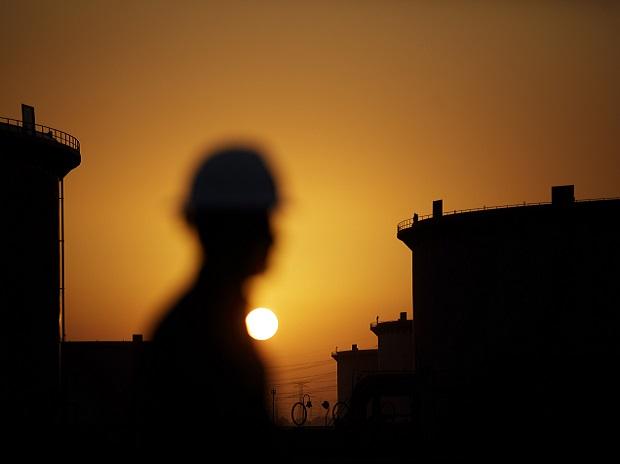Oil down as China developer downgrades add to fears of demand outlook

By Laura Sanicola
(Reuters) – Oil prices fell on Thursday on fears about the economic outlook in the world’s biggest oil importer following ratings downgrades to two Chinese property developers, and after some governments took measures to fight the Omicron varaint of the coronavirus.
Brent crude futures fell $1.01, or 1.3%, to $74.81 a barrel by 12:05 p.m. EDT (1705 GMT), backing off a session high of $76.70. U.S. West Texas Intermediate (WTI) crude futures were down $1.00, or 1.4%, at $71.36 after hitting a peak of $73.34.
On Thursday, ratings agency Fitch downgraded property developers China Evergrande Group and Kaisa Group to “restricted default” status, saying they had defaulted on offshore bonds, while a source said that Kaisa had started work on restructuring its $12 billion offshore debt.
“The … news … exacerbates the Chinese GDP growth fears and ultimately could impact the oil-buying appetite of the world’s biggest crude customer,” said Rystad Energy analyst Louise Dickson.
On Wednesday, British Prime Minister Boris Johnson imposed tougher COVID-19 restrictions in England, saying people should work from home where possible, wear masks in public places and show COVID-19 vaccine passes for entry to certain events and venues.
“Although laboratory tests showed that the Pfizer vaccine has a neutralising effect on Omicron … new measures are being introduced to try to stop the spread of the virus,” said Tamas Varga of oil brokerage PVM.
Denmark also plans new restrictions, including closure of restaurants, bars and schools, while China has halted group tourist trips from Guangdong.
South Korea has registered record infections while cases remain elevated in Singapore and Australia.
The number of Americans filing new claims for unemployment benefits dropped to the lowest level in more than 52 years last week as labor market conditions continued to tighten amid an acute shortage of workers, according to new data published by the U.S. Labor Department.
“The oil market doesn’t always respond well to good economic news either, because it could prompt the Federal Reserve to tighten monetary policy,” said John Kilduff, partner at Again Capital LLC in New York.
Markets were buoyed by comments from BioNTech and Pfizer that a three-shot course of their COVID-19 vaccine could protect against infection from the Omicron variant.
The Omicron outbreak sparked a 16% slump in Brent prices from Nov. 25 to Dec. 1. More than half of the drop has been recouped this week, but analysts say a further recovery could be limited until Omicron’s impact is clearer.
U.S. inventory data released on Wednesday also weighed on prices.
Energy Information Administration (EIA) data showed that crude inventories were down by 240,000 barrels last week, much less than analysts in a Reuters poll had expected, with stocks at the Cushing delivery hub in Oklahoma rising by 2.4 million barrels. [EIA/S]
Fuel stocks also rose by a combined 6.6 million barrels, the data showed.
(Additional reporting by Adhmad Ghaddar in London, Sonali Paul in Melbourne and Muyu Xu in Beijing; Editing by David Goodman, Kirsten Donovan and David Gregorio)
(Only the headline and picture of this report may have been reworked by the Business Standard staff; the rest of the content is auto-generated from a syndicated feed.)
 Dear Reader,
Dear Reader,
Business Standard has always strived hard to provide up-to-date information and commentary on developments that are of interest to you and have wider political and economic implications for the country and the world. Your encouragement and constant feedback on how to improve our offering have only made our resolve and commitment to these ideals stronger. Even during these difficult times arising out of Covid-19, we continue to remain committed to keeping you informed and updated with credible news, authoritative views and incisive commentary on topical issues of relevance.
We, however, have a request.
As we battle the economic impact of the pandemic, we need your support even more, so that we can continue to offer you more quality content. Our subscription model has seen an encouraging response from many of you, who have subscribed to our online content. More subscription to our online content can only help us achieve the goals of offering you even better and more relevant content. We believe in free, fair and credible journalism. Your support through more subscriptions can help us practise the journalism to which we are committed.
Support quality journalism and subscribe to Business Standard.
Digital Editor
business-standard.com

